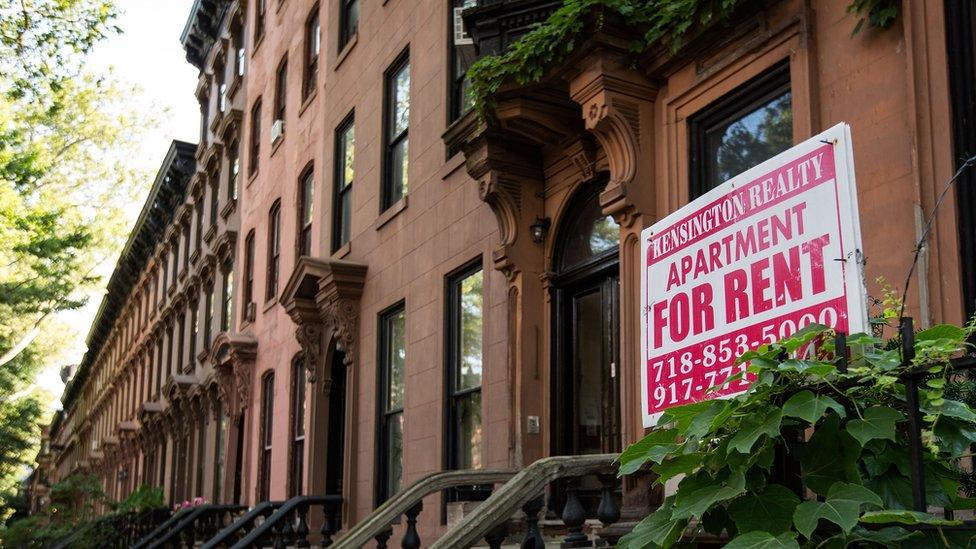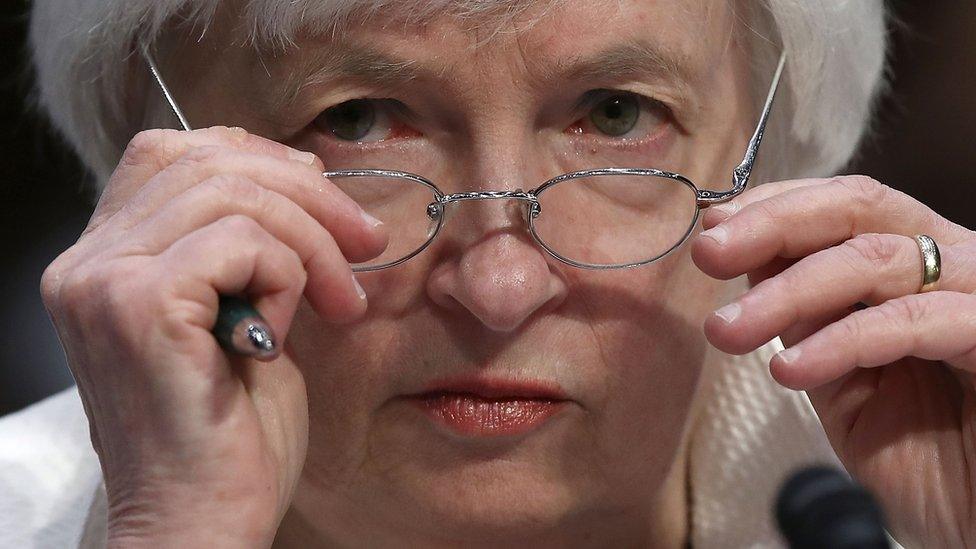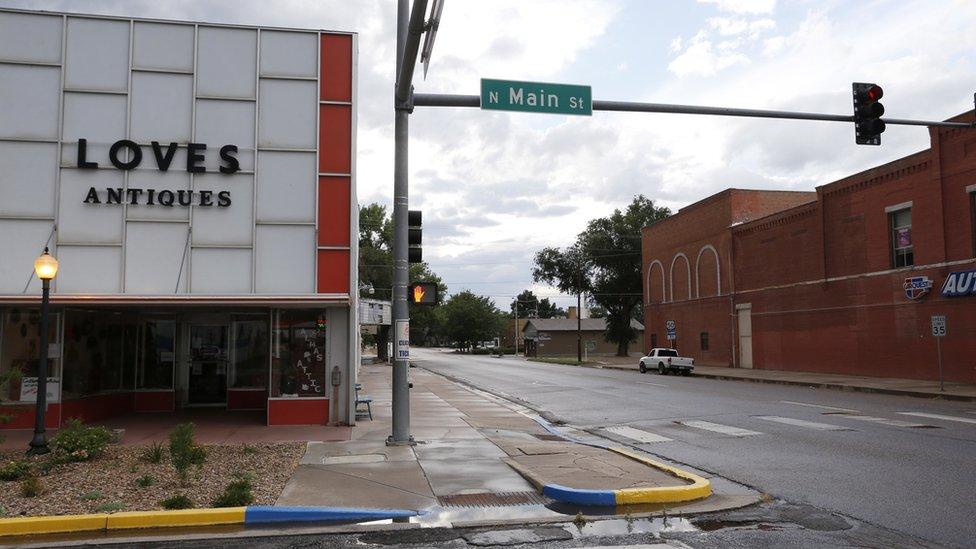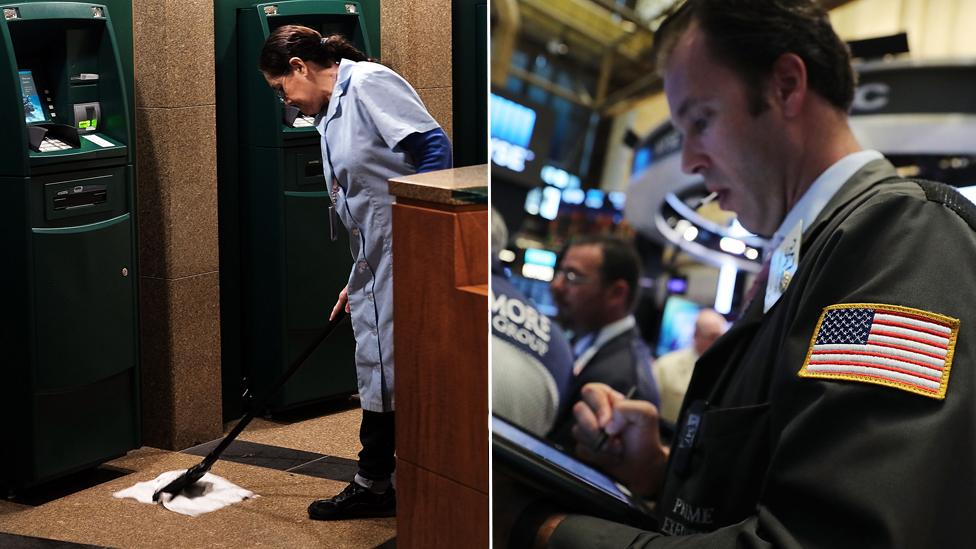Is the US economic recovery stuck in a rut?
- Published
The State of America: Jobs
The US economic recovery is now seven years old. So why don't many Americans feel like they've recovered?
On paper, all the indicators are there. The current economic expansion, which began after the global financial crisis of 2008, is among the longest in modern US history.
Statistics show the jobs market is improving and the unemployment rate has fallen. Some 14 million new jobs have been created in the private sector since 2010. Manufacturing alone has added 900,000 jobs. And car sales hit a record high in 2015.
Janet Yellen has said, external "the economy has made further progress" yet despite her reassuring words, all the supposedly encouraging data, the question vexing economists is why the country isn't in better shape.
You don't have to look far to see signs of the economy's fragility.
Take the housing market.

Renters are far more likely to have extremely burdensome housing costs
Eleven million Americans spent half their income on rent in 2014 - a record high, according to the annual State of the Nation's Housing Report, external from the Joint Center for Housing Studies of Harvard University.
The general rule of thumb is that you shouldn't spend more than 30% of your income but with rents rising faster than wages that's impossible for many.
Or what about the gross domestic product (GDP), which takes into account everything we spend our money on? The US's GDP grew just 1.1% from January to March.
Two experts explain why the recover is unevenly felt
Even the improving unemployment rate doesn't tell the whole picture. The country's labour participation rate - the share of the workforce in employment or looking for a job - is woefully low. Currently it stands below 63%, the lowest level since the 1970s.
The bottom line is that the recovery is more fragile than anyone would like. Ms Yellen has indicated that the Fed will increase interest rates slowly.

Janet Yellen's Fed has increased interest rates - but very slowly
"There are structural problems in the economy and the decline in labour force participation that worries me, as well as a feeling that Washington doesn't work," said Glenn Hubbard, who was Chairman of the Council of Economic Advisers under President George W Bush and is now the dean of Columbia University business school.
Mr Hubbard isn't surprised by the malaise many are expressing but argues that the root cause extends beyond the financial crisis.
"The economy as a whole is much better off from trade agreements and from immigration," he says, "but there are individuals in particular who may not be. And we as an economy haven't pursued policies particularly related to supporting work to help those individuals.
"I think that's the pain we're seeing."

Rural areas like Rocky Ford, Colorado, have seen less growth than urban areas since the recession
Income inequality between countries has gone down as a result of globalisation, but it has gone up within countries. So while workers in some parts of the world now have more opportunities, Americans have lost jobs or seen their earning power decrease.
In fact, working families haven't seen a raise in decades. Many are living pay cheque to pay cheque. According to a recent survey by the Federal Reserve, nearly half of all American adults couldn't scrape together $400 to cover a financial emergency, external such as a health problem or a car that needed fixing.
Part of the problem is the "winner takes all" economy. Those at the top are doing better. Those in the middle and bottom face stagnant wages or worse.
The International Monetary Fund warned in a recent report that income inequality may become worse without intervention. The IMF is among a growing chorus sounding the alarm.
The State of America: Inequality
"I worry that we are in something of an inequality trap," says Alan Krueger, who served as Chairman of the Council of Economic Advisers under President Obama and is now a professor of economics and public affairs at Princeton University.
"The fact that inequality has increased so much in the US, that the people on the bottom are starting with so many disadvantages, it's going to make it harder for them to have upward mobility.
"So I think our challenges are much greater than they were 20 years ago, 30 years ago when inequality was just starting to rise."
For a country that promises the good life to those willing to work hard, this is a troubling sign. Rising inequality threatens to impact the country's economic dynamism.

The economic difficulties have led to rising resentment and anger, similar to the feelings that drove the Brexit decision in Britain.
Presumptive Republican nominee Donald Trump has benefited from this growing economic populism, and one of the major themes of this upcoming presidential election is sure to be the deep-seated anger Americans feel towards the elite and globalisation.
To stop the American Dream from being downsized, prosperity must be restored. The challenge for the next president is how.
- Published23 June 2016

- Published4 February 2016
